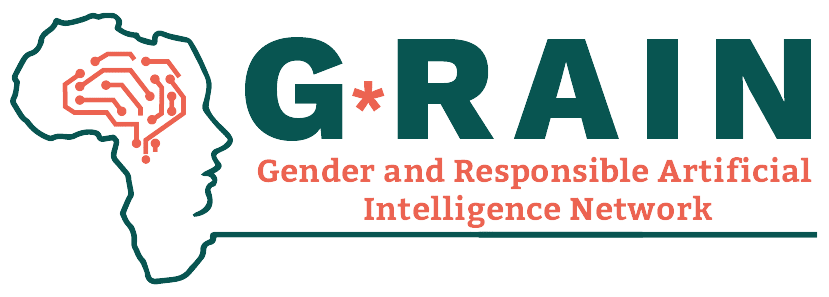Aim of the project
The project will identify and highlight the barriers to women's digital inclusion and examine ways to articulate women's perspectives in the development and application of agricultural AI systems, as well as in the associated policy processes.
Project summary
Artificial intelligence (AI) technologies are being explored in Africa to increase food security and improve the efficiency of agri-food system value chains. In an environment where the dynamics of gender inequality are already evident, women make up the largest proportion of agri-food system actors in the informal sector, particularly in food production, value addition and marketing.
While the digitisation and digitalisation of agriculture may have socio-economic benefits for women, they are likely to be excluded from the deployment of AI technology. This is likely to further widen the gap between men and women, preventing them from benefiting from digital transformation on an equal footing.
This study examines how the inclusion of women in Kenya's informal economy contributes to inclusive digitalisation. The project will identify and highlight barriers to women's digital inclusion and examine ways to articulate women's perspectives in the development and application of agricultural AI systems, as well as in associated policy processes.
Country: Kenya
Project sponsor
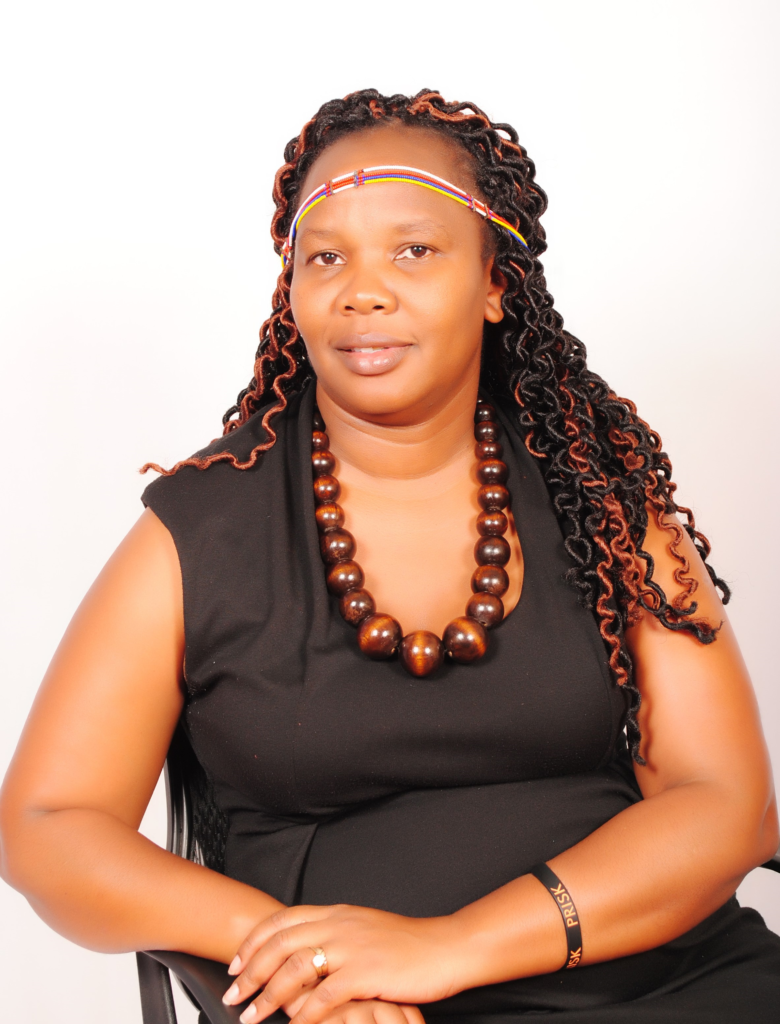
Angella Ndaka Angella Ndaka recently completed her PhD in Sociology and Gender Studies at the University of Otago, New Zealand. Her research focused on the sustainable techno-futures of artificial intelligence (AI). Other qualifications include Public Policy at the Australian National University, Intercultural and Multi-Stakeholder Dialogues and Education at Kenyatta University. She is currently an Early Career Researcher in Critical Sociotechnical Studies at the University of Otago, Executive Director and Head of AI Ethics and Governance Research at the Centre for African Epistemic Justice (CAEJ). At CAEJ, she leads research that promotes methodologies informed by African technological priorities and values, and complemented by global best practice in responsible research and innovation (RRI). She leads CAEJ to be a voice in addressing the epistemic injustices that accompany the investment, design and use of AI - with the aim of contributing to the production of research outputs and policy frameworks that improve the equitable and sustainable governance of AI in Africa and globally. Angella is a thought leader in complex and critical discourses on AI and emerging technologies, and a strong advocate for the critical inclusion of women and other minority groups in technology co-design and other critical decision-making spaces. Her thought-provoking conversations and discursive AI politics have earned her global recognition, placing her on the list of the 100 Brightest Women in AI Ethics in 2023. In the same year, she was declared the winner of the Women in AI Awards (APAC) in the 'Cultural Leadership' category. Angella is a strong advocate for Southern voices in AI discourse, which she does through research, blogging, tech-talks and speaking engagements.
Members of the team
Samwel Oando
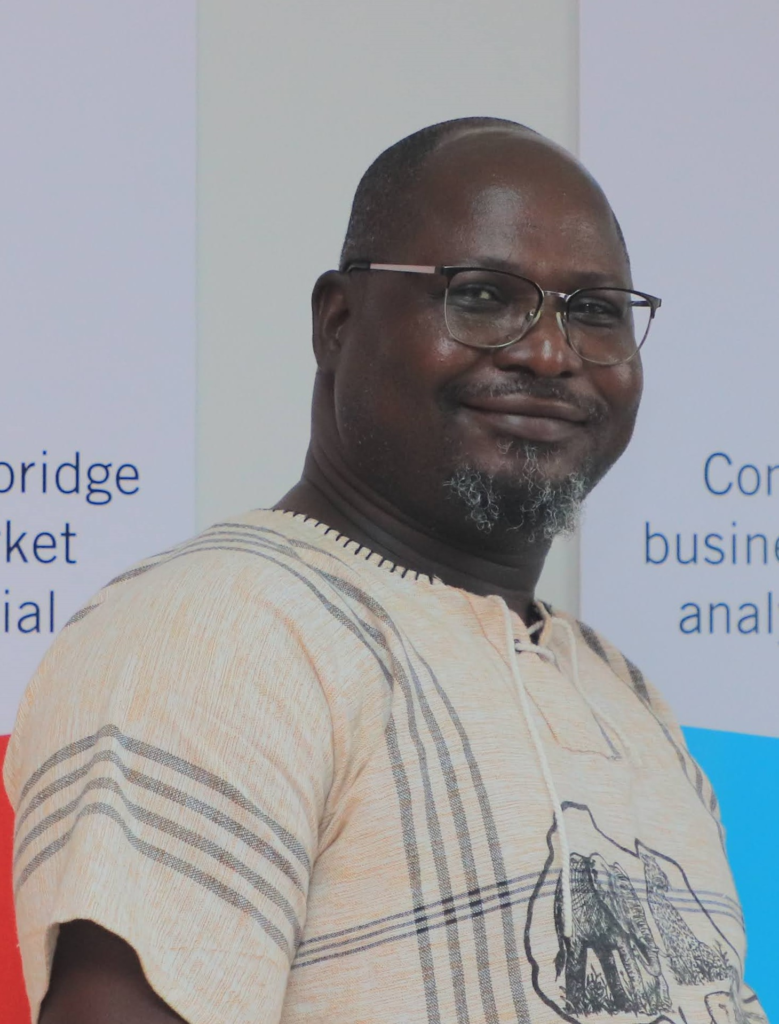
Samwel Oando holds a PhD in Peace and Conflict Studies, an MA in Economics, an MA in Gender, Women and Development Studies and a BA in Economics. He has 15 years' experience in the NGO sector, university research and higher education. Much of his previous work in gender research extends to studies of violence and discrimination, including the Stop Violence Against Girls in School (SVAGS), Action for Children's Rights in Education (ACRE) and Safe Schools for Girls projects. Her practice aims to promote equality of opportunity by seeking to value subordinate voices. Previous professional experience includes Executive Director of the Peace and Development Network (PeaceNet-Kenya), Director of Research (IGNITE) and Research Fellow/Analyst at the Catholic University of East Africa (CUEA). Samwel has participated in the UWIANO peace platform and launched a project on countering violent extremism in the IGAD region. He has also undertaken dozens of consultancy assignments with Microde Consult. He has worked for a wide variety of donors in various countries, including SADC countries, Central Africa such as Burkina Faso, but also in East Africa, Kenya and Tanzania. Mr Oando will bring a wealth of professional expertise.
Dr Eucabeth Majiwa
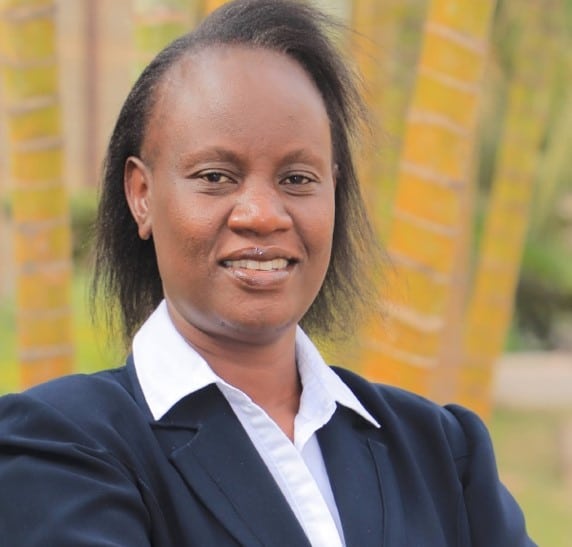
Dr Eucabeth Majiwa is a lecturer in the Department of Agricultural and Resource Economics at Jomo Kenyatta University of Agriculture and Technology where she has been teaching agricultural economics and agribusiness related courses since 12 October 2017 to date. Her research interests include agriculture, agribusiness and rural economic issues, including food systems, farm-level efficiency and technology assessment and transfer aimed at identifying programmes and policies to improve productivity and efficiency in agricultural and agro-industrial systems. She has been involved in applied field research on circular practices in the Rwandan agricultural sector as part of the Rwanda-CAE project, which is a collaborative project between the University of Rwanda and the University of Applied Sciences in Neu-Ulm (HNU), Germany. The project is funded by the DAAD with financial support from the German Federal Ministry for Economic Cooperation and Development (BMZ). It has obtained funding for two research projects, namely the "African ai Japan" project on : Improving the socio-economic status of dairy goat farmers in Kiambu, Embu and Meru counties in Kenya and the African Economic Research Consortium collaborative research project on the Impact of Agriculture and Food Policies on Nutritional Outcomes in Africa - Country Case Studies (AFPON) - Tanzania case study which is ongoing. She is a reviewer for a number of journals. She has successfully supervised five postgraduate students to completion and five more are in progress.
Ms Harriet Ratemo
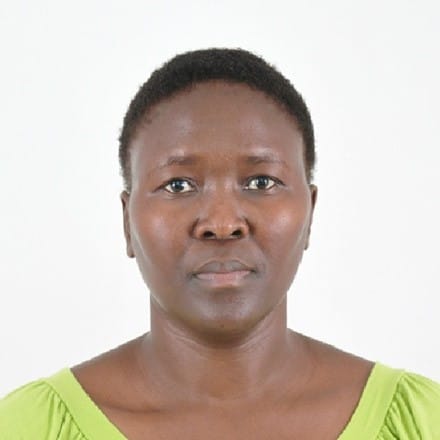
Harriet Ratemo is a computer scientist and PhD researcher at Jomo Kenyatta University of Technology. Her doctoral research focuses on AI and cybersecurity innovations. Harriet Ratemo is a computer scientist specialising in software and has developed AI systems. In the past, she has been involved in several AI design projects. For example, she participated in the project "Requirements elicitation for a blockchain vaccine supply chain management web/mobile application" published in Gates Open research. She also participated in the design of MazingiraApp on real-time air quality monitoring at JKUAT, VizAfrica 2018 Visualization Symposium, 2018. As a woman in AI design, she brings insights on how women are easily excluded in design spaces.
Institution: Centre for Epistemic Justice in Africa (CAEJ)
The Centre for Epistemic Justice in Africa (CAEJ) is a public interest consortium, formed through the collaboration of leading academics and researchers from across Africa, and headquartered in Nairobi, Kenya. We provide a platform for African scholars to address historical issues of knowledge and data justice through research in sub-Saharan Africa. We believe that the lack of knowledge justice is an avenue that is often exploited to promote sexism, racism, ageism and other x-isms, which reinforce the marginalisation of minority groups. We therefore promote research methodologies that are grounded in African priorities and values and complemented by global best practice, treating African people as sovereign individuals with legitimate rights to data and knowledge. We therefore aspire to help African governments and organisations define their own narratives and futures. While we recognise that conventional research practices, autonomous data practices and broader computing skills are essential to Africa's economic, political and cultural autonomy in the age of technological revolution, we are also aware that emerging technologies are not neutral.
One of our aims is therefore to work with different transdisciplinary teams and establish partnerships with organisations to explore research and capacity-building on the social issues anticipated in the design and adoption of emerging technologies and related practices, with the aim of helping the various technological players to make decisions, formulate policies and adopt technological practices and cultures that articulate everyone's needs, values and priorities when it comes to technological innovations. In this way, we ensure that no one is excluded from the benefits and opportunities offered by technology.
Not that long ago, people lived and functioned in tight communities. Every vendor knew their customers personally and could make...
This Machine Learning Glossary aims to briefly introduce the most important Machine Learning terms - both for the commercially and...
